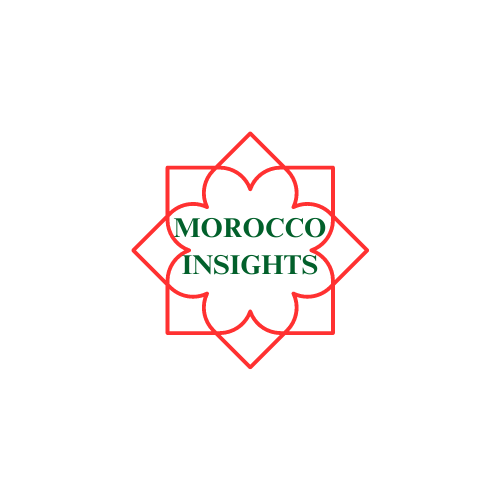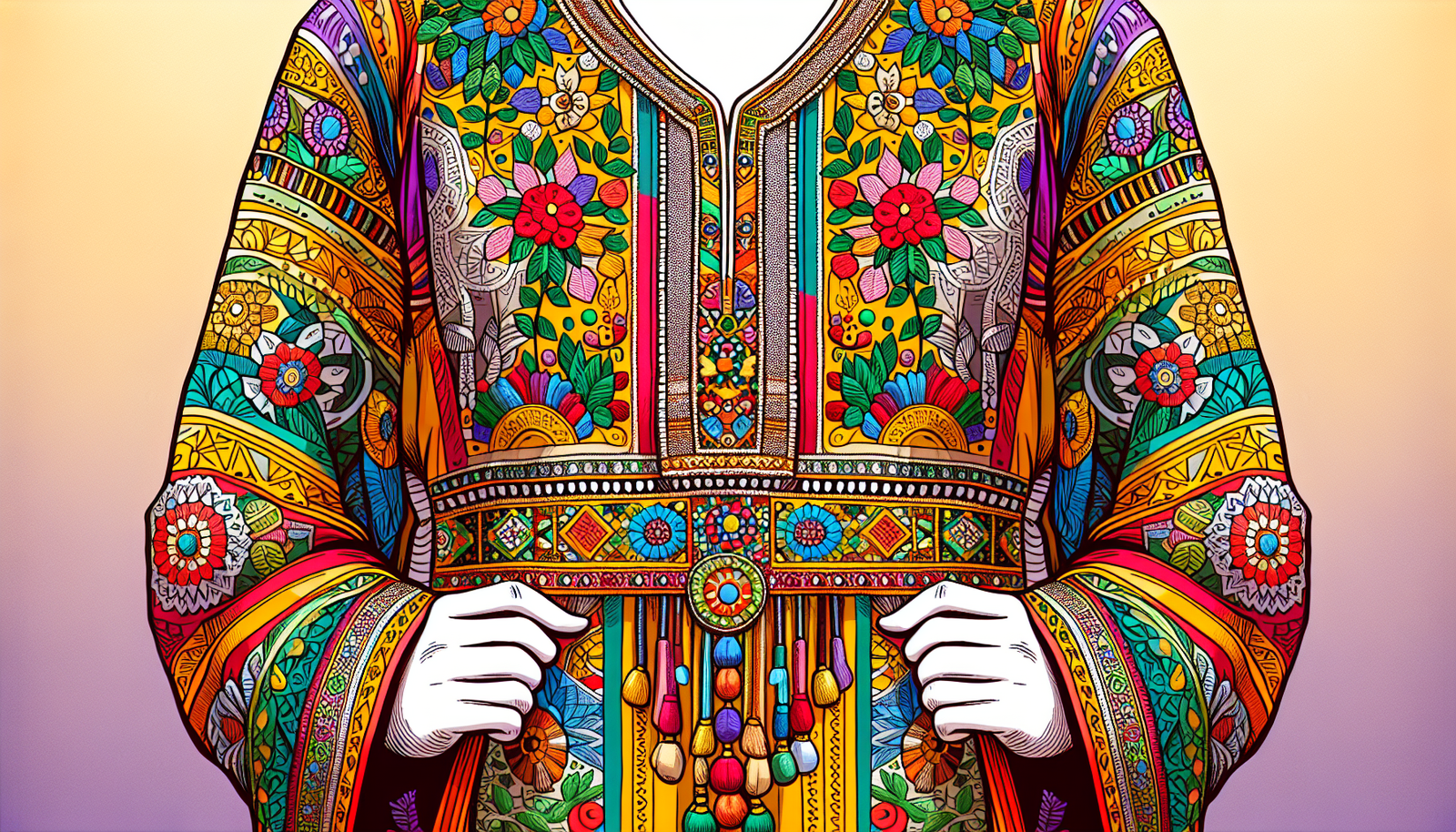What are some sustainable practices in Moroccan fashion? Moroccan fashion is a tapestry of color, tradition, and modernity that reflects the country’s rich cultural heritage and global presence. From traditional caftans with intricate embroidery to contemporary streetwear with bold designs, Moroccan fashion seamlessly blends old techniques with new trends. This fusion is led by talented Moroccan designers who create unique pieces that resonate globally. Not only do they showcase the artistry and diversity of Moroccan design, but they also promote sustainable and ethical fashion practices, highlighting the country’s commitment to craftsmanship and community. Moroccan fashion events and shows become platforms to celebrate this heritage, attracting fashion enthusiasts and media attention. With its unique blend of Islamic, African, and Mediterranean influences, Moroccan fashion continues to inspire and influence global trends, making it a symbol of cultural pride and innovation in the fashion industry.
The Use of Natural Fabrics
Using organic materials
In Moroccan fashion, the use of natural fabrics is at the forefront of sustainable practices. Designers prioritize the use of organic materials such as cotton, linen, and silk, which are grown without the use of harmful pesticides and chemicals. These natural fabrics not only have a lower environmental impact but also boast superior breathability and comfort. By incorporating organic materials into their creations, Moroccan designers not only prioritize the well-being of the planet but also ensure that their customers can enjoy garments that are gentle on the skin and free from harmful toxins.
Utilizing traditional weaving techniques
Another sustainable practice in Moroccan fashion is the utilization of traditional weaving techniques. Artisans skilled in ancient weaving methods create intricate patterns and textures, adding a unique touch to each garment. By embracing these traditional techniques, designers not only preserve the cultural heritage of Morocco but also support local artisans and their livelihoods. Additionally, weaving by hand reduces the reliance on energy-intensive machinery, further minimizing the industry’s carbon footprint. By incorporating these time-honored practices, Moroccan fashion celebrates craftsmanship while maintaining a sustainable approach.
Promoting Local Artisans
Supporting traditional craftsmanship
Moroccan designers actively promote and support local artisans by collaborating with them on their collections. By providing opportunities for artisans to showcase their skills and bringing their products to a wider audience, designers not only ensure the preservation of traditional craftsmanship but also contribute to the local economy. This approach encourages the continuation of age-old techniques and empowers artisans, maintaining their relevance in the modern fashion industry.
Providing fair wages and working conditions
In addition to supporting traditional craftsmanship, Moroccan fashion also emphasizes fair wages and working conditions for artisans. Designers prioritize ethical production practices, ensuring that artisans are paid fair wages for their valuable contributions. By providing stable and secure employment opportunities, Moroccan fashion helps uplift communities and improve livelihoods. This commitment to fair compensation and working conditions reflects the industry’s dedication to social responsibility and human rights.
Eco-friendly Dyeing Methods
Using natural dyes
Moroccan fashion embraces eco-friendly dyeing methods by utilizing natural dyes derived from plants, roots, and other organic sources. These natural dyes not only produce exquisite, rich colors but also eliminate the need for harmful synthetic chemicals typically associated with conventional dyeing processes. By opting for natural dyes, designers are able to create vibrant and unique garments while minimizing environmental harm.
Implementing water-saving techniques
Water scarcity is a global concern, and Moroccan fashion recognizes the importance of water conservation. Designers implement water-saving techniques in the dyeing process, reducing water usage and minimizing waste. By adopting innovative methods such as low-water immersion dyeing and water-recycling systems, Moroccan fashion ensures that its practices are both sustainable and mindful of the planet’s limited resources.
Upcycling and Repurposing
Transforming vintage textiles
Moroccan fashion embraces upcycling and repurposing as a way to reduce waste and promote sustainability. Designers breathe new life into vintage textiles and garments, transforming them into contemporary pieces that blend history with modernity. By repurposing existing materials, Moroccan fashion minimizes the demand for new resources and encourages a circular economy within the industry.
Creating new designs from waste materials
In addition to upcycling vintage textiles, Moroccan designers also create new designs from waste materials. By utilizing fabric scraps and offcuts, designers develop innovative and unique garments, turning what would have been discarded into valuable creations. This approach not only reduces fabric waste but also showcases the creative potential of sustainable practices in the fashion industry.
Zero Waste Production
Minimizing fabric waste
Zero waste production is a fundamental principle of sustainable fashion in Morocco. Designers employ efficient pattern cutting techniques and meticulous planning to minimize fabric waste during the production process. By ensuring that every piece of fabric is utilized, Moroccan fashion aims to eliminate unnecessary waste and reduce its environmental impact.
Efficient pattern cutting techniques
Moroccan designers prioritize meticulous pattern cutting techniques in order to optimize fabric usage. By strategically planning and designing patterns, they are able to create garments with minimal leftover fabric. These efficient techniques not only contribute to zero waste production but also demonstrate the creativity and resourcefulness of Moroccan fashion.
Ethical Supply Chains
Ensuring transparency and traceability
Moroccan fashion values transparency and traceability throughout its supply chains. Designers collaborate with local suppliers who adhere to ethical practices, ensuring that materials are sourced responsibly and from reputable sources. By working closely with suppliers, Moroccan fashion ensures that its garments are produced under fair and ethical conditions, from the sourcing of fibers to the finished product.
Partnering with fair trade organizations
To further strengthen ethical supply chains, Moroccan fashion often partners with fair trade organizations. These partnerships guarantee that workers receive fair wages, safe working conditions, and other social benefits. By aligning themselves with fair trade principles, Moroccan fashion demonstrates its commitment to social equality and the well-being of those involved in the production process.
Reducing Energy Consumption
Implementing renewable energy sources
Moroccan fashion acknowledges the importance of reducing energy consumption and mitigating its impact on the environment. Designers take proactive measures by implementing renewable energy sources, such as solar power, to fulfill their production needs. By utilizing clean, sustainable energy alternatives, Moroccan fashion minimizes its carbon footprint and contributes to a greener future.
Optimizing production processes
Moroccan fashion consistently seeks ways to optimize its production processes and reduce energy usage. Designers employ innovative technologies and efficient machinery to streamline operations and minimize energy consumption. By continuously evaluating and improving their production processes, Moroccan fashion remains committed to sustainable practices and environmental stewardship.
Sustainable Packaging and Shipping
Using recycled and biodegradable materials
In line with its commitment to sustainability, Moroccan fashion prioritizes the use of recycled and biodegradable materials for packaging. Designers use recycled cardboard, paper, and sustainable alternatives to plastic, ensuring that their packaging materials are eco-friendly and can easily break down after use. By opting for sustainable packaging options, Moroccan fashion aims to reduce waste and minimize its environmental impact.
Optimizing shipping routes and modes
Moroccan fashion also emphasizes the optimization of shipping routes and modes to minimize carbon emissions. Designers work closely with logistics partners to identify the most efficient transportation methods, reducing fuel consumption and emissions. By adopting these sustainable shipping practices, Moroccan fashion aims to balance global distribution with mindful environmental considerations.
Collaborations with Indigenous Communities
Preserving traditional knowledge and techniques
Moroccan fashion celebrates the rich cultural diversity of the country by actively collaborating with indigenous communities. By engaging with artisans and traditional craftspeople, designers not only preserve traditional knowledge and techniques but also incorporate unique cultural elements into their designs. These collaborations ensure that indigenous communities are respected, valued, and empowered, allowing them to share their expertise with the broader fashion industry.
Creating economic opportunities for marginalized groups
Collaborations with indigenous communities in Moroccan fashion go beyond cultural preservation. They also create economic opportunities for marginalized groups, empowering individuals and communities by providing fair and sustainable livelihoods. By recognizing the importance of inclusivity and diversity, Moroccan fashion exemplifies the transformative power of fashion in promoting social change and creating economic equality.
Educating Consumers on Sustainable Fashion
Promoting conscious consumerism
Moroccan fashion actively educates consumers on the importance of sustainable practices and conscious consumerism. Designers and brands raise awareness about the environmental and social impact of fast fashion, encouraging consumers to make responsible choices when it comes to their fashion purchases. By promoting conscious consumerism, Moroccan fashion cultivates a community of individuals who are informed and empowered to support sustainable fashion initiatives.
Raising awareness of the environmental and social impact of fashion
Moroccan fashion plays a crucial role in raising awareness of the environmental and social impact of the fashion industry. Through campaigns, events, and collaborations, designers create platforms for dialogue and discussion, shedding light on issues such as pollution, labor exploitation, and waste generation. By initiating these conversations, Moroccan fashion inspires individuals to make informed decisions and actively contribute to a more sustainable fashion industry.
In conclusion, sustainable practices in Moroccan fashion encompass a wide range of initiatives that prioritize environmental, social, and cultural values. By utilizing organic materials, supporting local artisans, implementing eco-friendly dyeing methods, and promoting zero waste production, Moroccan fashion showcases its commitment to sustainability and responsible fashion practices. Moreover, through ethical supply chains, reduced energy consumption, sustainable packaging and shipping, collaborations with indigenous communities, and consumer education, Moroccan fashion aims to create a positive impact on both the industry and the world at large. By embracing these sustainable practices, Moroccan fashion stands as a beacon of inspiration, illustrating the potential for fashion to be a force for good in our efforts to create a more sustainable and equitable future.

